Breaking
- MENU
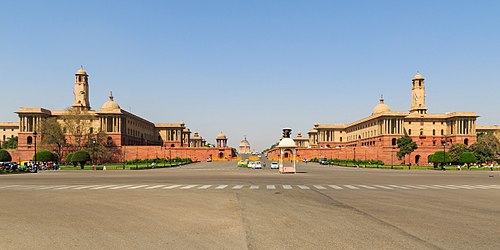
BILATERAL ISSUES
EGYPT
Consular Camp in Port Said on 22 November 2019, Cairo, 19 November 2019.
A Consular Camp will be held in Port Said from 1300 hours to 1700 hours on 22.11.2019. The venue of the camp is as follows: PLANET BOLLYWOOD RESTAURANT SHOKRI AL KOWATI STREET QESM ASH SHARQPORT SAID.
The camp will provide Consular Services including accepting of Passport renewal applications, Attestations, Certificates and other Miscellaneous Services. Any issues faced by the community can also be brought to the notice of the Consular officials during the camp. All Indian Community members residing in Port Said and nearby areas may avail the services provided at the camp. Source: Embassy of India, Cairo.
Announcement of ICCR Africa Scholarship Scheme for 2020-2021, Cairo, 25 November 2019.
The Indian Council for Cultural Relations (ICCR), Ministry of External Affairs is offering 27 slots to Egyptian students under its Africa Scholarship Scheme for the academic year 2020-2021 for studying in Under-graduate, Post-graduate and PhD courses in various Indian Universities/Institutes. Interested students should register and apply on the ICCR A2A Scholarship Portal and submit the Application to the Embassy. Some of the main highlights of the Scholarship Scheme are as follows:(i)The applicant has to register and apply online on the ICCR Scholarship Portal “Admission 2 Alumni” at http://a2ascholarships.iccr.gov.in/(ii)Students between the age of 18 years to 30 years can apply for Under-graduate and Post-graduate courses. However, the age limit for PhD courses is 45 years. Students should exercise due diligence & research in a dedicated manner on the specific admission criteria laid down by various Universities for each subject and submit all relevant documentation as required by the Universities in addition to the basic certificates mentioned in the application form.(iii)Since the medium of instructions for the course is English, the applicant should be able to speak, read and write in English. A written English Test will be conducted in the Embassy of India for all the eligible Students after scrutiny of their applications. Only students proficient in English may apply.(iv)After completing all the details and successful online submission, a printed hard copy may be sent, along with necessary copies of the requisite enclosures to the Embassy of India, 5 Aziza Abaza Street, Zamalek, Cairo, latest by 15th January 2020 for Undergraduate and Postgraduate, and by 15thJuly 2020 for PhD courses. (v)All students will have to stay in University hostels in India.
(vi)Only applications submitted through the A2A Scholarship Portal will be considered. All the instructions, guidelines, FAQs, Universities List and other details are available on the A2A Scholarship Portal. Students are also requested to browse for additional information and requirement of the proposed University, through its website. (vii)For B.Sc. and B.E./B.Tech. courses, candidates should have taken Physics, Chemistry, and Mathematics (PCM) in their school leaving examination as this is mandatory criteria for these courses. It may also be noted that for science courses, the expenditure on laboratory chemicals and other related incidental charges during their study will be borne by the students themselves.(viii)Scholarship for admission in medical / paramedical (nursing /physiotherapy / anaesthesia etc.) and fashion courses are not admissible under this scheme.(ix)The scholarship will cover airfare, tuition fees, living allowance, and basic health cover.(x)An initial Briefing Session on ICCR Africa Scholarship Scheme 2020-21for Under-Graduate, Post-Graduate, and PhD applicants will be organized on 5th December 2019 at Embassy of India, Cairo (5 Aziz Abaza Street, Zamallek) at 1400 hrs. All interested applicants are requested to attend this session before submission of online applications. Source: Embassy of India, Cairo.
IRAN
Unstarred Question No. 513, Status of Chabahar Project, Lok Sabha, 20 November 2019
513. SHRI SUSHIL KUMAR SINGH:
Will the Minister of EXTERNAL AFFAIRS be pleased to state:
(a) the present status of Chabahar Project;
(b) the details of investments made by India on Chabahar Project till today;
(c) the impact of sanctions on Iran by the United States on the development of Chabahar Project; and
(d) Whether 17 foreign countries announced their readiness for contribution to the port’s development including China, recently and if so, the details thereof including the impact foreseen by the Ministry on the basis of this development?
ANSWER:
THE MINISTER OF STATE IN THE MINISTRY OF EXTERNAL AFFAIRS [SHRI V. MURALEEDHARAN]
(a) to (d) India is participating in the development of the first phase of Shahid Behesti Port in Chabahar in cooperation with the Government of Islamic Republic of Iran. The Indian company, India Ports Global Limited, has taken over port operations in December 2018 and has been successfully handling cargo since then. Afghanistan has also started using the port facility. It has sent its first consignment to India through Chabahar Port in February 2019. Subsequently, it has sent four more consignments to India through Chabahar Port. As part of the Agreement, India is to extend grant assistance of nearly USD 85 million and a credit facility of USD 150 million for Chabahar Port development.
The U.S. has shown understanding of the importance of the Chabahar Port operations for continued humanitarian supplies to Afghanistan and to provide Afghanistan with economic alternatives.
There have been media reports about interest expressed by other countries to participate in the development of Chabahar Port. It is for the Government of Iran to decide and choose the partner for development of different phases of the Chabahar Port. India continues to partner in the development and operation of Shahid Behesti Port, Chabahar. Source: Ministry of External Affairs (MEA).
KUWAIT
Celebration of Constitution Day 2019, Kuwait, 26 November 2019
Embassy of India organized a function in its auditorium to celebrate the Constitution Day of India and mark the 70th Anniversary of adoption of India’s Constitution. The Constitution of India formally came into effect on 26 January 1950, which is celebrated as Republic Day of India. The event was very well attended with the presence of a large number of distinguished guests comprising a Member of National Assembly of the friendly State of Kuwait, officials from the Government of Kuwait, representatives from Academia, leading Think Tanks, Diplomats, representatives of the Indian Community in Kuwait, and a significant number of Kuwaiti and Indian students. An eminent Constitutional expert and Professor of Public Law at Kuwait University, Dr. Mohammad Al-Feeli was the Keynote speaker at the event. Addressing the gathering, H.E. Mr. K. Jeeva Sagar, Ambassador of India to Kuwait, credited the Constitution for the progress of the country governed by strong, independent democratic institutions; and for creation of an ecosystem which provides meaningful freedom for realization of true potential of an individual. Underlining that Kuwait itself is a Rule-based and Constitution-based nation, the Ambassador thanked the leadership, the Government and the people of Kuwait for their humanitarian and friendly approach towards expatriates in general and Indian community in particular. In his keynote address, Dr. Feeli highlighted the salient features of the Indian constitution, particularly the aspects of Pluralism and Secularism, Fundamental rights, Directive Principles of State Policy, and the principle of separation of powers. He spoke about the farsightedness shown by the drafting members of the Constitution in providing an enduring framework of the Rule of Law to fulfil the aspirations of over a billion people. Two short documentaries on India’s Constitution viz. “India –The Spirit of Freedom” and “Mooknayak –Leader of the Silent” were screened on the occasion. On the sidelines, a collection of photographs of the theme -“Making of the Indian Constitution” were also displayed. Source: Embassy of India, Kuwait.
Unstarred Question No. 1163, MoU Between India and Kuwait, Rajya Sabha, 28 November 2019.
1163. SHRIMATI VIJILA SATHYANANTH:
Will the Minister of EXTERNAL AFFAIRS be pleased to state:
(a) whether it is a fact that Government has approved the signing of a Memorandum of Understanding (MoU) between India and Kuwait for co-operation on the recruitment of domestic workers;
(b) if so, the details thereof;
(c) whether it is also a fact that the move is likely to benefit around three lakh Indian workers deployed in Kuwait, including about 90,000 female domestic workers; and
(d) if so, the details thereof;
ANSWER:
THE MINISTER OF STATE IN THE MINISTRY OF EXTERNAL AFFAIRS [SHRI V. MURALEEDHARAN]
(a) to (d) Yes. Government has approved the signing of MoU between India and Kuwait for cooperation on the Recruitment of Domestic Workers in January 2019. The MoU provides a structured framework for cooperation on domestic workers related matters and reflects the latest reforms in recruitment processes, their welfare and protection and various initiatives taken by both sides. Under this MoU, a Joint Committee will be set up to follow up on the implementation of this MoU. The MoU would benefit around 300,000 Indian domestic workers who are deployed in Kuwait which includes about 90,000 female domestic workers. Source: Ministry of External Affairs (MEA).
PALESTINE
United Nations Relief and Works Agency for Palestinian Refugees in the Near East: Indian Statement by Ambassador K. Nagraj Naidu, Deputy Permanent Representative in the United Nations, 74th Session of United Nations General Assembly Fourth Committee Agenda Item 50, New York, 11 November 2019.
Thank you, Madam Chair for giving me the floor.
2. We thank Mr. Christine Saunders, Officer-in-Charge of UNRWA, for his briefing.
Madam Chair,
3. India’s support and solidarity with the 5.5 million Palestinian refugees remain strong and abiding.
4. India has been supportive of UNRWA’s work which is providing assistance to Palestine refugees to help them achieve their full human development potential.
5. We commend UNRWA’s partners, including existing and new donors, and the host governments for supporting UNRWA’s works.
6. We support extending UNRWA’s mandate for the next three years.
7. We note with appreciation Secretary General’s efforts to effectively tackle allegations of managerial misconduct in UNRWA.
8.UNRWA’s resources come from voluntarily contributions, with a limited donor base. This arrangement is already fraught with uncertainties of sudden crisis; therefore it is critical that the faith of donors in the agency is restored. In this regard, we thank the Secretary General for keeping the member states informed of the ongoing investigation and also for confirming that the allegations under investigation do not relate to any fraud or misappropriation of operational funds provided by the donors.
9. UNRWA’s financial situation is dire. The funding gap of $89 million in 2019 remains a cause of concern as this has put to risk the Agency’s core services to the Palestine refugees, notably in the fields of education, health, and assistance to the most vulnerable refugees.
10. 3.1 million Palestine refugees depend on health services provided by UNRWA. UNRWA school educate 526,000 students every year. 50% of these students are female. Keeping these services operational throughout the year is important.
11. The agency has been able to overcome similar funding gaps in the past through innovative global fundraising campaign and outreach and internal cost-saving measures. We hope that these efforts would continue, however these may still not be adequate in 2019.
12. We note the expectation from donors to contribute at the same level as in 2018 so that the current projected shortfall could be closed. As a mark of our solidarity with the Palestine refugees, the Government of India has increased its annual financial contribution fourfold to the UNRWA core budget, from $1.25million in 2016 to $5 million in 2018. We have contributed $5 million in 2019 and pledge to contribute $5 million in 2020 also.
13. As part of the Government of India’s ongoing capacity-building assistance in Palestine, 150 Palestinian professionals are trained every year under the Indian Technical and Economic Cooperation programme. Every year 100 meritorious Palestinian students are offered fully funded scholarships under the General Scholarship Scheme of the Indian Council for Cultural Relations. India has also started an annual Youth Exchange Programme with Palestine since 2017. These programmes are also available to Palestine refugees.
14. In addition, during the last five years, under an India-Palestine development partnership, 17 agreements have been signed in the fields of agriculture, healthcare, information technology, youth affairs, consular affairs, women’s empowerment and media. Under these agreements, around $72 million of financial support and project assistance has been offered for projects like post-2014 war reconstruction efforts in Gaza; the construction office schools; the India-Palestine Centre of Excellence for Informational and Communication Technologies at the Al-Quds University, with a satellite centre in Ramallah; the India-Palestine Techno-park in Ramallah; a100-bed super specialty hospital in Bethlehem; the construction of the Palestine Institute of Diplomacy in Ramallah; a National Printing Press; and establishing a Heritage Centre for the Empowerment of Women and Young People.
15. UNRWA’s Advisory Commission plays a crucial role in the governance of UNRWA. Since the membership criterion to the Advisory Commission is $15 million worth of contribution during 3 years, we hope that Advisory Commission members who have not been able to contribute up to this level would scale up their contribution.
16. We appeal to other traditional donors of UNRWA to consider enhancing their contributions and non-donor member states to consider contributing to UNRWA in solidarity with the Palestine refugees.
Thank you, Madam Chair. Source: Permanent Mission of India to UN.
SAUDI ARABIA
Cabinet approves MoUs signed between India and Saudi Arabia in the field of combating illicit trafficking and smuggling of Narcotic Drugs, Psychotropic Substances and Chemical Precursors, New Delhi, 27 November 2019.
The Union Cabinet chaired by the Prime Minister Shri Narendra Modi has given ex-post facto approval for the MoUs between India and Saudi Arabia in the field of combating illicit trafficking and smuggling of Narcotic Drugs, Psychotropic Substances and Chemical Precursors.
Benefits:
The MoU shall facilitate and enhance the cooperation between the two countries in combating illicit trafficking and smuggling of narcotic drugs, psychotropic substances and chemical precursors, as defined by the United Nations international Drug Control Conventions.
Under the MoU, there is a provision for the exchange of relevant information as well as methods, identities and suspicious activities of producers, smugglers and traffickers of narcotic drugs, details of trafficking of NDPS and Precursors Chemicals on requisitions and financial details of the traffickers arrested on drug related charges.
Under the MoU, there is also a provision for notification of the details of the arrested citizen of the other Party for committing the crime of illicit trafficking or smuggling of narcotic drugs, psychotropic substances and chemical precursors and consular access to the arrested person.
The MoU also provides for exchange of chemical reports/analysis of narcotic drug, psychotropic substances and chemical precures seized within the territory of either party and data/information about illegal laboratories of narcotic drugs, psychotropic substances and chemical precures and their technical specifications.
Background:
Illegal Drug trafficking is a global illicit trade. Massive production and circulation of drugs through various convenient routes especially through Afghanistan is paving ways for high consumption of drugs amongst youth thus creating a negative impact on public health and adding to criminalization of the society. Drug trafficking has also provided funding for insurgency and terrorism in various regions throughout the world. Narco-terrorists and international criminal organizations that thrive on the illegal drug trade now threaten the security of many nations. Source: Press Information Bureau (PIB).
Cabinet approves Post Facto the Agreement on establishment of Strategic Partnership Council between India and Saudi Arabia, New Delhi, 27 November 2019.
The Union Cabinet chaired by Prime Minister Shri Narendra Modi today approved Post Facto the Agreement signed by Prime Minister on 29th October, 2019 for establishment of Strategic Partnership Council between India and Saudi Arabia.
The Agreement will enable the leadership at the highest-level in both countries to meet regularly and monitor progress in the ongoing initiatives/projects under the strategic partnership. It will help identify new areas for forging strategic engagement and will define the goals to be achieved and benefits to be derived.
Benefits
The proposal aims to benefit the citizens with improved economic and commercial linkages with Saudi Arabia irrespective of any gender, class or income bias.
This Agreement with Saudi Arabia will open new avenues of partnership in strategic areas like defence, security counter-terrorism, energy security and renewable energy. Source: Press Information Bureau (PIB).
TURKEY
Indian Embassy Celebrates ITEC Day, Ankara, 05 November 2019.
The Embassy of India celebrated the 55th anniversary of Indian Technical and Economic Cooperation (ITEC) Day on 31 October 2019.
The celebration was also attended by senior officials from Ministry of Foreign Affairs and around 100 ITEC alumni. Mr. Hakan Riza Tekin, DG-South Asia, Ministry of Foreign Affairs was the chief guest of the function. During the celebrations, a cultural performance by Ms. Bilgi, and her students was also organized. Speaking on the occasion, a number of ITEC alumni shared their experiences about India and how the course has benefitted their professional expertise.
Mr. Sanjay Bhattacharyya, Ambassador of India to Turkey noted that the ITEC programme has been pivotal in training senior officers and other officials from various ministries and departments of the Turkish government as well as from Chambers of Commerce and NGOs at India’s most premier institutions. The program has contributed towards skill up-gradation and human resources development.
ITEC program is fully funded by the government of India to share India’s developmental experience with 161 friendly developing countries including Turkey. The training courses are in the fields of computers, engineering, information technology, journalism, banking, legislation, power, remote sensing, manpower research, education, empowerment of women, hydrology, law enforcement, business planning and promotion, accounts and finance, etc. It provides win win solutions through exchanges on capacity building and human resource development. Source: Embassy of India, Ankara.
India's Ambassador to Ankara Sanjay Bhattacharyya spoke to Milliyet Ankara, Ankara, 19 November 2019.
The Magic of the Colours:
Two Ancient Civilizations: Sanjay Bhattacharyya said: “Bilateral relations gained momentum after frequent talks between President Recep Tayyip Erdogan and Prime Minister Narendra Modi. As the two major economies, the G20 members and the two ancient civilizations, we will play a role in restructuring the multilateral system in regional and global relations”.
Ancient Art of Yoga:
Bhattacharyya: “The number of Indian tourists visiting Turkey is increasing by double every year. Turkey supported us in the 150th birth anniversary of Mahatma Gandhi, the ancient art of yoga and celebrating the Holy festival. Especially Holy is getting more colourful with the participation of more people every year. The magic of colours unites people”.
We Want to Get Closer:
India's Ambassador to Ankara Bhattacharyya: “As the two major economies, the G20 members and the two ancient civilizations, we will play a role in restructuring the multilateral system in regional and global relations”.
Bhattacharyya: “The presence of Indian businessmen in Turkey has grown significantly in recent years due to the favourable conditions of Turkey's economy. There are more than 150 Indian companies with a 500-million-dollar investment in Turkey. Bilateral relations gained momentum after frequent talks between President Recep Tayyip Erdogan and Prime Minister Narendra Modi. As the two major economies, the G20 members and the two ancient civilizations, we will play a role in restructuring the multilateral system in regional and global relations. The approach in political and security relations are increasing every year. India's rapid development in science and technology leads to significant capabilities in the production of a range of products and advanced technology systems, many of which are dual-use”.
We Can Develop Projects:
Bhattacharyya: “India is a member of global conventions on trade in dual-use products and technologies. For this reason, our trade guides our international commitments and applies to all countries in the same manner. India in accordance with international guidelines, is exporting a large number of products with dual use capabilities to Turkey. India and Turkey have significant technologies and production capacity for the defence industry. There is great potential for closer bilateral cooperation, especially in informatics, aviation and other fields. We want to develop projects with Turkey in many areas including the defence area. The exchange of senior defence personnel and the understanding of defence cooperation agreement will accelerate our bilateral defence cooperation.”
The Magic of Colours:
Bhattacharyya stated that the number of Indian tourists visiting Turkey is increasing by double every year. He added: “Istanbul, Cappadocia and Ephesus are the most popular destinations. We would wish to see more Turkish tourists, travelling to India to experience the beauty and diversity of our people, monuments, culture and landscapes. With the engagements that we are in, we want to bring India and Turkey closer. Our principal cultural events include the mega cultural festival “India by the Bosporus”, Tagore Painting Competition for children, music and dance programmes, monthly Bollywood movie shows, regular Yoga classes and others. Turkey greatly supported us in the 150th birth anniversary of Mahatma Gandhi, the ancient art of Yoga and celebrating the Holy festival”.
Investment Roadshow:
Bhattacharyya: “India is making several reforms to improve the ease of doing business. Currently some of the most prominent Turkish investors in India are Sisecam (glass), Arcelik (white goods) and Celebi (logistics). We are planning an Investment Roadshow to build permanent partnerships with Turkish businessmen. In this regard, for the supply of material to be used in space research, Turkey will be our first address. In addition, we want to see more companies in the construction sector with our new urbanization approach. The presence of Indian businessmen in Turkey has grown significantly in recent years due to the favourable conditions of Turkey's economy. There are more than 150 Indian companies registered in Turkey of whom around 40 are engaged in manufacturing and service sectors, with an investment of around 500 million dollars. Within these companies some of them are farm machinery sector ( Mahindra, Tafe, Sonalika), agriculture (Jain Irrigation, UPL), IT and consultancy (Wipro), chemicals and synthetic textiles (Indo Rama, Polypet, Reliance), steel (Tata), medical (Meril), mining (Solar), engines (CRI Pumps), aviation (Indigo). Indian construction companies played a strong role in the construction of TANAP pipeline and Star Vito refinery. There is a continued interest among Indian companies to enter the Turkish market for win-win solutions.”
“Our satellite launch vehicles are among the best in the world.”
Bhattacharyya stated that India is aiming the global leadership in the space engagements. He added: “Our space programme is oriented towards obtaining space data for the people. Our satellites provide communication facilities for digital and information connectivity, remote sensing data for resource planning, urban development, agriculture and meteorology etc. Currently we are developing NAVIC, an indigenous navigation network. Our satellite launch vehicles are among the best in the world. We also provided services for the launching of Turkish nano satellites and we will soon collaborate.
The next major project is Gaganyaan, the manned mission which is to be launched in 2021.
Moon Landing Attempt:
Contact with the spacecraft Chandrayan-2, which India was planning to land on the moon, was lost seconds and 2.1 km from the surface. Under the project, which cost $ 150 million, the mineral in the south pole of the Moon, as well as water, would be sought and the Moon shakes were going to be measured. India's attempt to land on the Moon, which sent the Chandrayaan-2 into space on July 22 to become the fourth country to land on the moon, failed. The Chandrayaan-2 spacecraft, designed to be the first spacecraft looking for water at the south pole of the Moon, was planned to make India the "fourth country landing the Moon" in history. Source: Embassy of India, Ankara.
Cumhuriyet Interview, Ankara, 22 November 2019.
Indian Ambassador Bhattacharyya: Mediation is not on the agenda
India's control of Jammu and Kashmir to Pakistan for the resolution of the tension started after removal of the status of autonomy in Turkey that provides "mediation" while calling, India has closed the door to the mediator. India's Ambassador to Ankara, Sanjay Bhattacharyya, said, A third party cannot have a mediating role for the solution, which is by no means on the agenda.
While Pakistan called Turkey for "mediation" for the solution of the problem occurred after the revoking of the special status of J&K by India, India has shut the door for mediation proposal. Ambassador of India to Turkey Sanjay Bhattacharyya said "There can't be a mediation role for a third party; this is not on the agenda." 100 days have passed since the beginning of the tension after the revoking of the special status of J&K. During his visit to Turkey, Azad Jammu Kashmir President Sardar Mesud Khan stated that Turkey could take a "mediator" role. Talking about the developments in Kashmir, Ambassador Bhattacharyya stated that there is no such situation that requires mediation. “Friendly countries should consult Pakistan to stop terrorist activities and behave like a normal country." Autonomy article was removed to integrate the region to India so development, social justice and security against cross-border terrorism will be facilitated, Bhattacharyya added. Source: Embassy of India, Ankara.
UAE
Country Statement delivered by Minister of State for External Affairs during the 19th Council of Ministers Meeting of IORA, Abu Dhabi, 7 November 2019.
Your Excellency, Minister Sayegh;
Excellencies, colleague Ministers;
I thank our hosts for the outstanding arrangements and the hospitality for which the Emirati people are famous. I also reaffirm the priority India attaches to the IORA, as an innovative concept, and a unique, broad-based platform for inter-regional partnership, connecting through the seas, the world’s most dynamic regions of South, Southeast and West Asia, Oceania and Africa.
Excellencies,
Our meeting today is timely. Over the past year, the world has remained in ferment. Yet a positive consequence is increased faith in suitably reformed multilateralism. The value of partnerships drives us to focus on maintaining the open and inclusive nature of the maritime domain, and to reaffirm the importance for all nations to adhere to international rules and laws. This is both at the heart of IORA, and the increasing trend of nations located in this region, or with significant interests in it, to articulate the need for a free, open, inclusive and rules-based Indo-Pacific.
India is pleased to note commonalities in its vision of the Indo-Pacific, and those of partners in IORA. We look forward to inputs for an IORA-specific understanding of the Indo-Pacific from the 6th Indian Ocean Dialogue, and the Indian Ocean Rim Academic Group meeting, both of which India will host in December along with the Expert Group on Academics, Science and Technology Cooperation.
Excellencies,
Our Senior Officials have agreed on programmes for IORA’s Action Plan in its two remaining years. We urge greater focus on implementation: our group should not focus only on projects and events, but on focused, impactful actions. For this, we have a few suggestions:
First, administration and finance. A ship is only as fast as its engine room is sound. And despite efforts by our Secretariat, there is a need for all to pull their weight. We need to improve rules and procedures for the Secretariat, especially our Special Fund. As promised, my Ministry will send a team from its audit and finance departments later this month, to advise us on the Fund. We will also be deploying at our cost an IT specialist from the National Informatics Centre of India. The selected officer will leave for Port Louis soon, to start work within this year. And we are deploying a new Director, again at our cost, at the Secretariat.
There is an obvious link between efficiency of the Secretariat and finances. There is a mismatch between our annual contributions, and the needs of the Secretariat and our Plan of Action. We should task officials to devise a new, equitable payment plan that does not increase the burden on States that cannot afford to pay more.
Since this will take time and presuming, we can improve the working method of our Special Fund, we invite partners to add resources to the Fund, to support practical cooperation. We have just deposited US $ 1 million to the Fund last week.
Second, practicable work plans are key. We welcome finalization of such Work Plans in our priority areas. Our calendar of activities must be well-balanced, and experts from our line Ministries should be suitably involved.
As Coordinator of the Priority Area on Disaster Risk Management, we are pleased to have circulated here Guidelines for Disaster Risk Management. We were glad IORA partners joined us for our annual HA/DR exercises this past August. Lessons learned were circulated recently. Given the vulnerability of the larger Indo-Pacific region to natural disasters, we believe such exercises should have the widest-possible participation. We also encourage partners to join the Coalition for Disaster Resilient Infrastructure, launched at the United Nations this past September. And we look forward to positive responses on the MOU we have circulated in IORA, to share information from our Information Fusion Centre for the Indian Ocean Region.
Third: widening the circle. IORA will be more effective when we go beyond policy makers and academics to bring in business and other stakeholders. Our activities and programmes must have a real-world impact.
In this context, we are pleased to help promote intra-IORA trade and tourism. We will host a workshop on beach and cruise tourism in Spring 2020, in partnership with our business chamber. And we are hosting a course in film making at our National Film and Television Institute in February. Our businesses have also made more suggestions to improve intra-IORA trade through trade facilitation and promotional activities. These are valuable suggestions, considering that the sea routes in the Indian Ocean should connect our countries with each other as well.
In this context, we see value in greater intra-IORA work on the Blue Economy and on Science and Technology. Bearing in mind the risk that pollution, especially plastic waste, unregulated exploitation of resources including illegal, unreported and unregulated fishing, poses to the environmental equilibrium of our oceans, we need to task our scientists and oceanographers to increase understanding of these challenges and to convey to policy makers solutions to address these challenges.
In this regard, our Prime Minister recently announced an Indo-Pacific initiative for the Oceans. It calls for creating partnerships to deal with specific challenges to our maritime domain, from security and safety to disaster management; from sustainable management of resources to better trade and transport links. We will be happy to share details so that we can collectively address the challenges to Indian Ocean.
Dialogue Partnerships symbolize inclusivity and cooperation. We welcome interest evinced by so many of our valued partners in the IORA. It is now our Group’s responsibility to establish a workable model to engage with Dialogue Partners that is in line with the inclusive nature of the group and its objectives, while prioritizing the Member State-led nature of its processes.
Excellencies, distinguished delegates,
India congratulates the UAE in assuming the chair of the IORA. We are certain that under the leadership of the UAE, IORA will attain greater heights and move towards achieving the objectives set out in the IORA Charter. India and the UAE share historical friendship connected by the Indian Ocean with strong people to people ties. India will actively support the UAE in its efforts to promote a shared destiny and a path to prosperity in the Indian Ocean.
Let me conclude by recording our appreciation to South Africa for its leadership of IORA these past years. We also welcome India’s close neighbour and valued friend, Bangladesh, to the Troika, as the next Chair. We also congratulate Maldives on becoming full member of the IORA and welcome them warmly to the IORA family.
Thank you. Source: Ministry of External Affairs (MEA).
PM congratulates President Sheikh Khalifa bin Zayed Al Nahyan on being re-elected as President of UAE, New Delhi, 07 November 2019.
The Prime Minister, Shri Narendra Modi has congratulated President H.H. Sheikh Khalifa bin Zayed Al Nahyan on being re-elected as President of UAE.
“Our congratulations to President H.H. Sheikh Khalifa bin Zayed Al Nahyan on being re-elected as President of UAE. I am confident that under his dynamic and visionary leadership, our friendship and our Comprehensive Strategic Partnership will continue to further grow and deepen”, the Prime Minister said. Source: Press Information Bureau (PIB).
Relations with UAE are at their best, we consider UAE our brothers” - MOS Finance, Shri Anurag Thakur, New Delhi, 07 November 2019.
The Union Minister of state for finance and corporate Affairs, Shri Anurag Thakur while addressing the session on ‘Growing economic ties between with UAE at the first day of the Global Investors' Meet 2019, in Dharamshala, Himachal Pradesh said that India and UAE share a ‘Comprehensive Strategic Partnership’, it is time to enhance this further through investments in the state of Himachal Pradesh.
Shri Anurag Thakur while lauding Prime Minister, Shri Narendra Modi’s initiatives in introducing the new investment policy which made India a ‘Investor’s heaven’ said that UAE is the 3rd largest partner which lead the relations with UAE at their best, we consider UAE our brothers.
He said that the Union Government has taken numerous policy reforms, economic measures, corporate tax cuts and steps to facilitate ease of doing business in India. Himachal has a conducive climate, hardworking and skilled workforce that will be an asset to any companies looking to invest here. Dharamsala is known the world over for two reasons: His Highness, Dalai Lama who has had a special bond with Dharmshala and who’s presence has brought millions of tourists to this region. Second, the Dharamshala Cricket Stadium which has immensely boosted economic activity in the region and state, he added
The Minister further said that there are many tasks force and Joint Working Groups and Ministerial Groups between India and UAE working on investment, trade, skills etc. He said that he is confident that we will galvanise the strength of our 3.3 million work force in bringing our nations together. Source: Press Information Bureau (PIB).
Introduction of Visa-on-Arrival facility to nationals of the United Arab Emirates, Abu Dhabi, 17 November 2019.
The Government of India, with effect from November 16, 2019, has decided to extend the Visa-on-Arrival facility to nationals of the United Arab Emirates. This facility is aimed at further strengthening people to people & trade links as well as strategic ties between the two countries.
Visa-on-Arrival will be available to UAE nationals for a period of up to 60 days with double entry for business, tourism, conference and medical purposes. This facility will be available at six designated International Airports namely, Bangalore, Chennai, Delhi, Hyderabad, Kolkata and Mumbai.
Visa-on-Arrival will be available only to those UAE nationals who have earlier obtained an e-Visa or a normal paper Visa for India, irrespective of whether the person actually visited India or not. Those UAE nationals going to India for first time, may be advised to apply for e-Visa or a normal paper Visa.
For more information, please visit website: https://indianvisaonline.gov.in/visa/visa-on-arrival.html. Source: Embassy of India, Abu Dhabi.
MULTILATERAL ISSUES
GCC
The GCC Bureau of Technical Secretariat for Anti Injurious Practices in International Trade meets with a Delegation from the Republic of India, Riyadh, 26 November 2019.
The GCC Bureau of Technical Secretariat for Anti Injurious Practices in International Trade held a meeting on Tuesday, 26 November 2019, at the GCC headquarters in Riyadh. The Indian delegation was led by, Dr. Rajiv Arora, Director General of Foreign Trade of the Ministry of Commerce and Industry in the Republic of India and Dr. Pradeep Kumar, Deputy Ambassador of the Republic of India to the Kingdom of Saudi Arabia, where the GCC delegation was led by, Mr. Rehan Mubarak, the Director General of the GCC Bureau of Technical Secretariat for Anti Injurious Practices in International Trade.
The meeting discussed some issues related to the anti-dumping investigation against the GCC States imports of ceramic products at the request of India.
The Indian side also raised some queries and comments concerning the Indian Ministry of Commerce and Industry's take on the open to the anti-dumping investigation of ceramic products by the GCC Bureau of Technical Secretariat. The Director General of the GCC Bureau of the Technical Secretariat and the investigation team responded to the comments and clarified the technical aspects. Source: Gulf Cooperation Council (GCC).
As part of the policy, the MEI@ND standardizes spellings and date format to make the text uniformly accessible and stylistically consistent. The views expressed here are those of the author and do not necessarily reflect the views/positions of the MEI@ND. Editor, MEI@ND P R Kumaraswamy
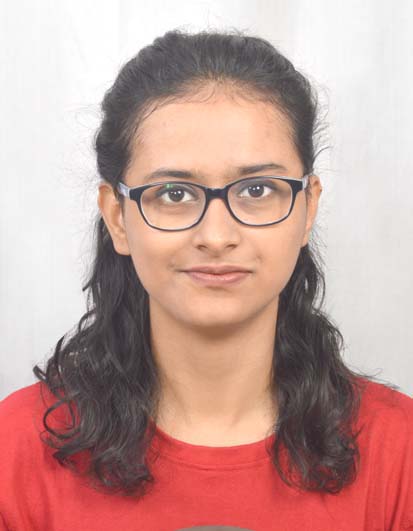
Ankita Sanyal is a doctoral candidate at Centre for West Asian Studies, Jawaharlal Nehru University, New Delhi. She worked as a summer intern at National Human Rights Commission, New Delhi in 2014 and participated in Global Initiative for Academic Networks, lecture on “Jerusalem and Abrahamic Faiths throughout the Ages” (November 2016); ICSSR-sponsored workshop on “Research Methodology Workshop in Social Sciences” (February 2019); and workshop on “Second Intensive Course on Women’s Studies in Islam and Iran” at the University of Religions and Denominations, Qom, Iran (August 2019). She currently has many publications and has presented papers in national and international conferences. She received certificate on completion of Level Two Persian Language course. Her area of interest includes minority studies, gender studies, cultural studies, education, peace and conflict studies.
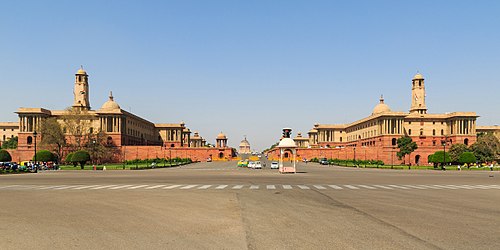
BILATERAL ISSUES BAHRAIN The CEO of LMRA highlights details on the new labour market reforms, .....
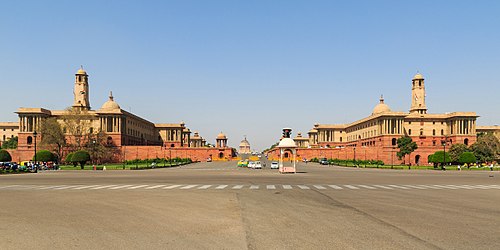
BILATERAL ISSUES EGYPT Raksha Mantri Shri Rajnath Singh to visit Egypt from September 19-20, 2.....
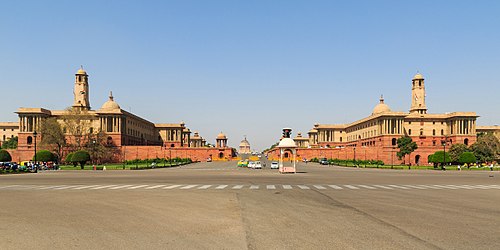
BILATERAL ISSUES IRAN Shri Sarbananda Sonowal visits Chabahar Port in Iran to Review work prog.....
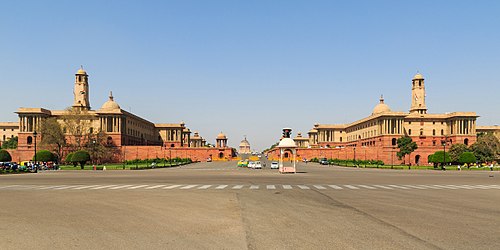
BILATERAL ISSUES BAHRAIN Deputy Chief of Naval Staff, India visits Kingdom of Bahrain, Manama,.....
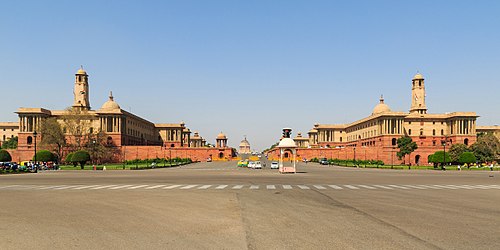
BILATERAL ISSUES BAHRAIN Buyer Seller Meet on Indian coffee between Indian exporters and Bahra.....
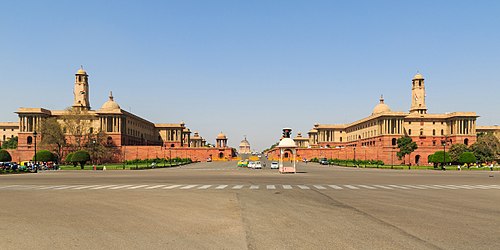
BILATERAL ISSUES BAHRAIN B2B meeting and Networking event between Bahraini & Indian IT com.....
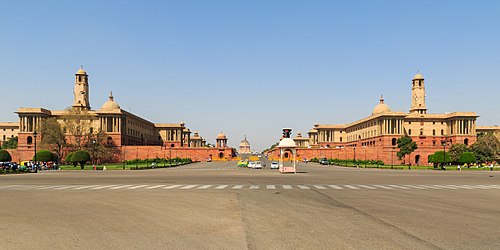
BILATERAL ISSUES OMAN Community Service Fortnight / Sewa Utsav’: ‘Celebration Thro.....
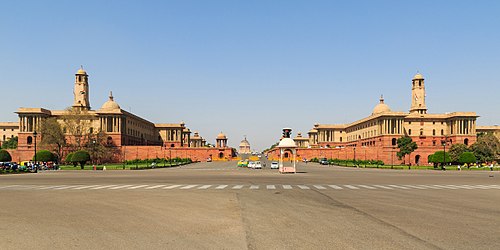
BILATERAL ISSUES BAHRAIN Virtual Buyer Seller Meet on agriculture and food products between In.....
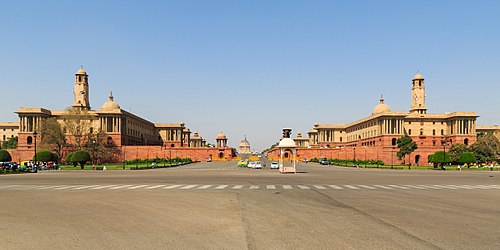
BILATERAL ISSUES BAHRAIN PM speaks on telephone with His Royal Highness Prince Salman bin Hama.....
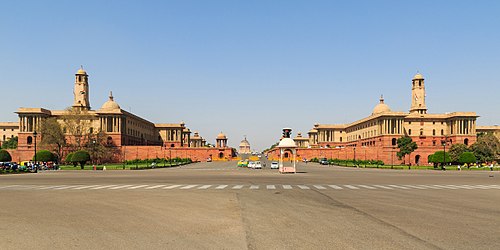
BILATERAL ISSUES ISRAEL Experts from India and Israel suggested expanding scope of India-Israe.....
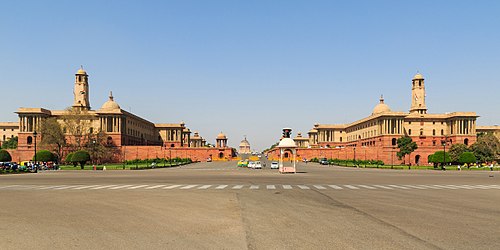
BILATERAL ISSUES BAHRAIN Press Release on virtual meeting between Minister for Education and S.....
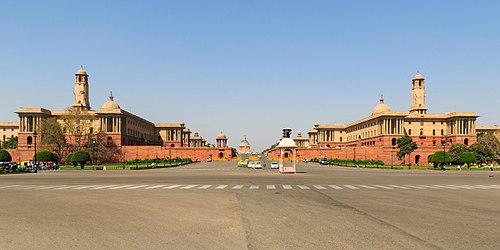
BILATERAL ISSUES BAHRAIN Ambassador’s visit to India Pavilion of Jewellery Arabia, Bahra.....
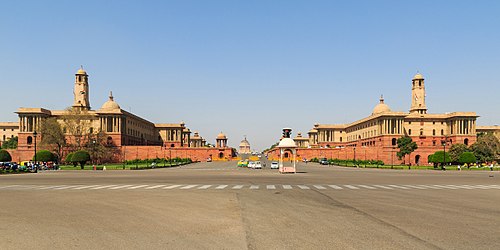
BILATERAL ISSUES BAHRAIN First consignment of GI tagged sweet dish Mihidana from West Bengal e.....
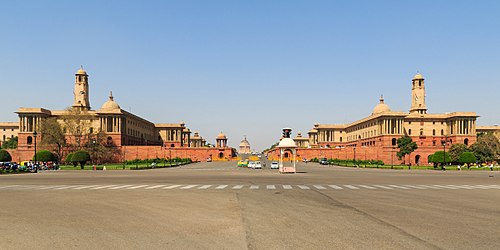
BILATERAL ISSUES ALGERIA Visit of Shri V. Muraleedharan, Minister of State for External Affair.....
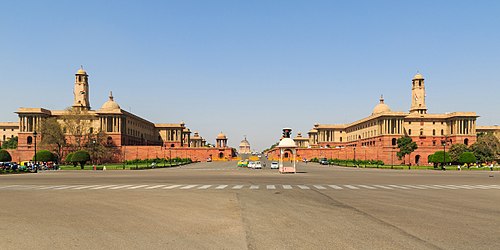
BILATERAL ISSUES ALGERIA INS TABAR undertook a bilateral Passage Exercise (PASSEX) with Algeri.....
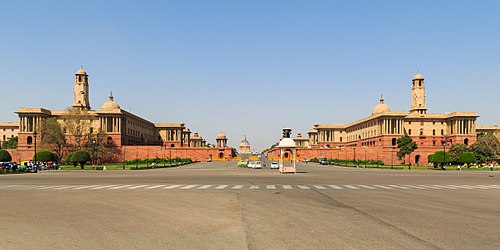
BILATERAL ISSUES BAHRAIN India expands mango export footprint to newer countries; GI certified.....
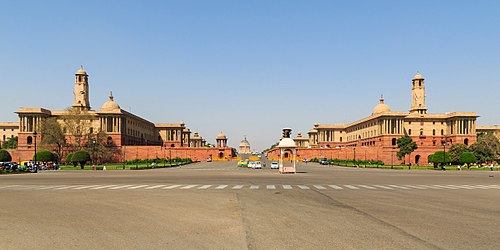
BILATERAL ISSUES ALGERIA APEDA in collaboration with Indian embassy organize virtual buyer sel.....
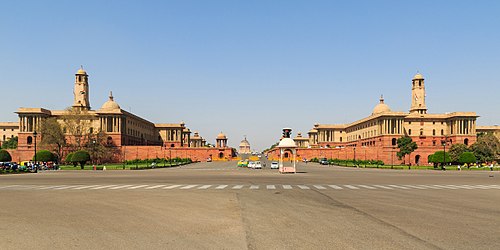
BILATERAL ISSUES EGYPT Procurement of 300,000 doses of Remdesivir from M/s EVA Pharma, Cairo, .....
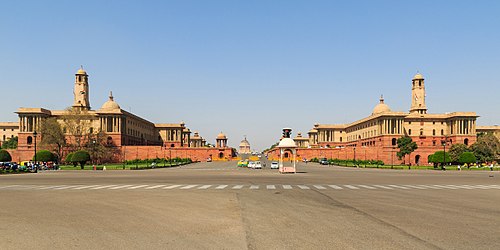
BILATERAL ISSUES BAHRAIN Third India-Bahrain High Joint Commission Meeting, New Delhi, 07 Apri.....
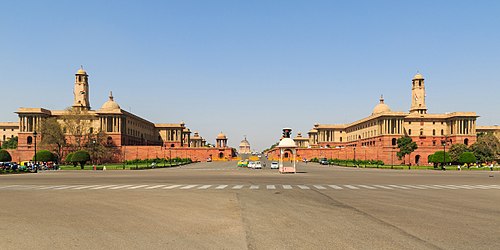
BILATERAL ISSUES BAHRAIN Indian Naval Ship Talwar’s Port Visit to Bahrain, Manama, 18 Ma.....
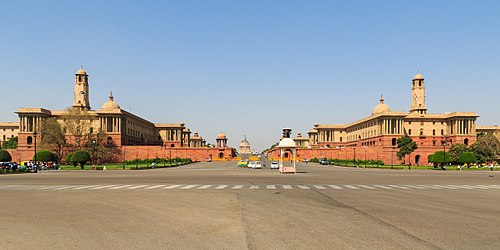
BILATERAL ISSUES IRAN Unstarred Question No.1475, Chabahar-Zaheden Railways Line, Lok Sabha, 1.....
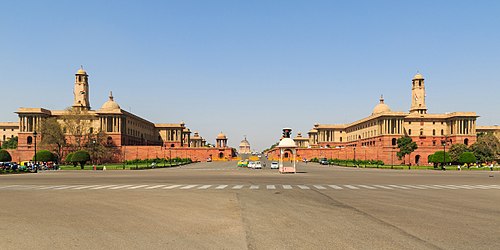
BILATERAL ISSUES IRAN Government of India strengthens cargo handling capacity of Chabahar Port.....
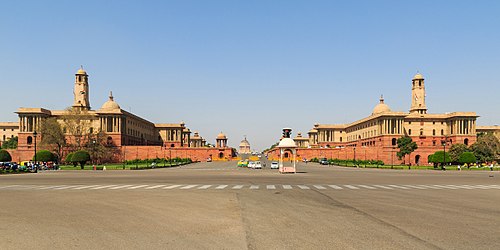
BILATERAL ISSUES BAHRAIN Warm greetings from Indian leadership on the occasion of Bahrain&rsqu.....
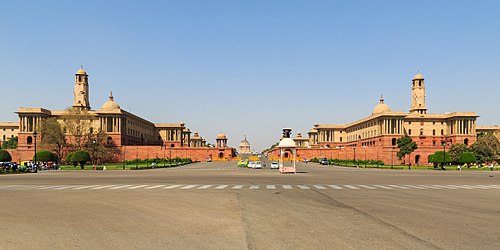
BILATERAL ISSUES BAHRAIN Prime Minister condoles the passing away of His Royal Highness Prince.....
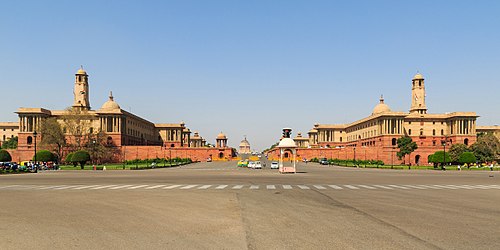
BILATERAL ISSUES BAHRAIN A B2B Webinar on Enhancing Opportunities in Pharmaceuticals and Alter.....
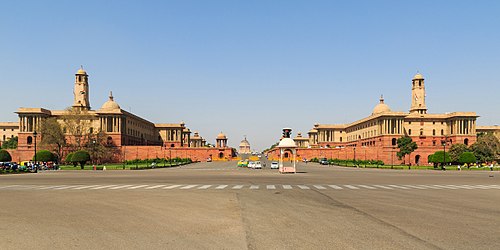
BILATERAL ISSUES IRAN Raksha Mantri Shri Rajnath Singh holds meeting with Iran's Minister .....
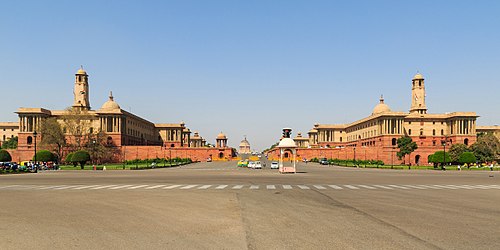
BILATERAL ISSUES ISRAEL Statement by the Official Spokesperson on the full normalisation of re.....
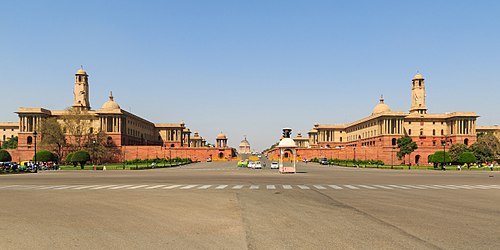
BILATERAL ISSUES ISRAEL Raksha Mantri Shri Rajnath Singh and Israeli Defence Minister telephon.....
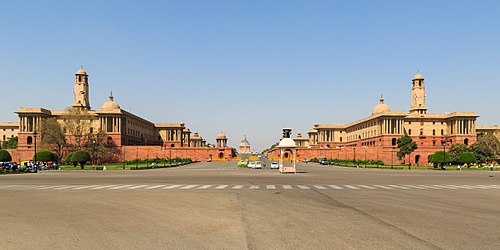
BILATERAL ISSUES IRAN Indian Navy Commences evacuation of citizens from Islamic Republic of Ir.....
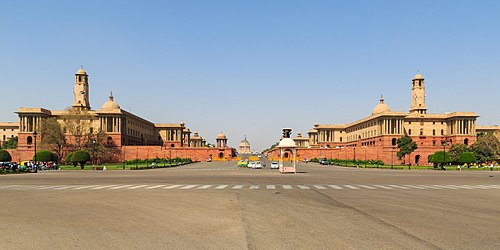
BILATERAL ISSUES EGYPT Phone call between Prime Minister Shri Narendra Modi and His Excellency.....
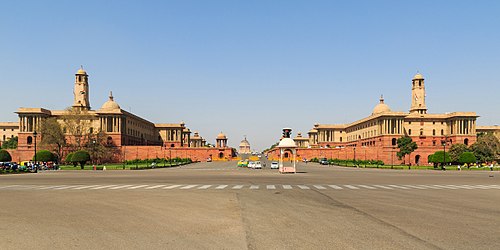
BILATERAL ISSUES BAHRAIN Telephone Conversation between PM and King of the Kingdom of Bahrain,.....
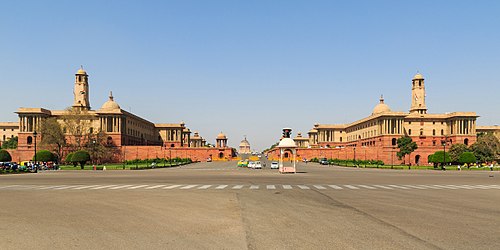
BILATERAL ISSUES IRAN IAF C-17 ‘Globemaster’ takes off for Iran, New Delhi, 9 Marc.....
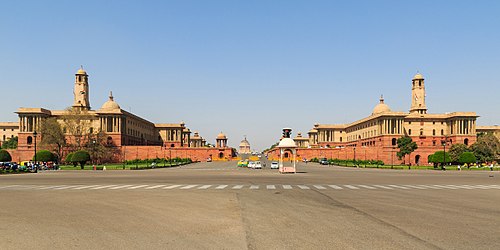
BILATERAL ISSUES IRAQ Travel Advisory for Indian Nationals travelling to Iraq, New Delhi, 19 F.....
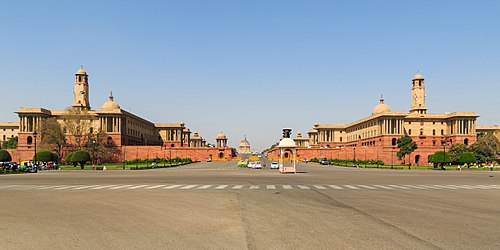
BILATERAL ISSUES EGYPT Photo exhibition on “Making of Indian Constitution and Life of Dr.....
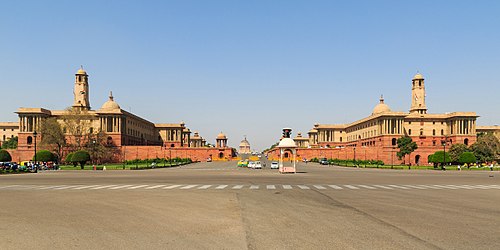
BILATERAL ISSUES EGYPT Prize Distribution Function of “Glimpses of India” Painting.....
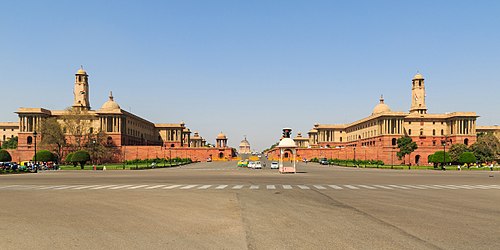
BILATERAL ISSUES JORDAN Meeting between Prime Minister and King of Jordan in Riyadh, Riyadh, 2.....
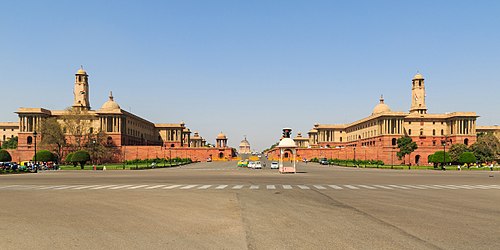
BILATERAL ISSUES a. IRAN Foreign Office Consultations between India and Iran, Tehran, 16 Septe.....
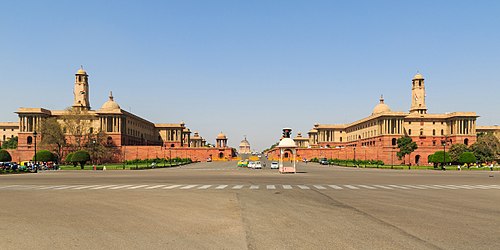
BILATERAL ISSUES a. BAHRAIN State Visits of Prime Minister to Bahrain (August 24-25, 2019), Ne.....
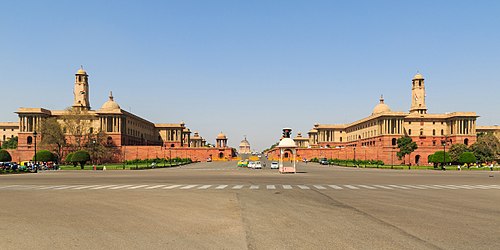
BILATERAL ISSUES BAHRAIN Cabinet approves Memorandum of Understanding between India and B.....
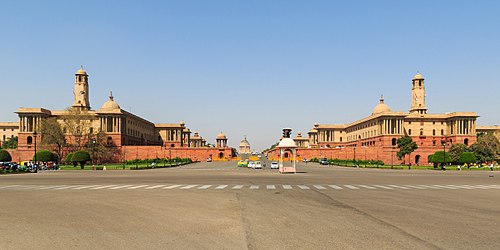
BILATERAL ISSUES IRAN UNSTARRED QUESTION No. 662 MPACT OF AMERICAN BAN ON CHABAHAR PORT, Rajya.....
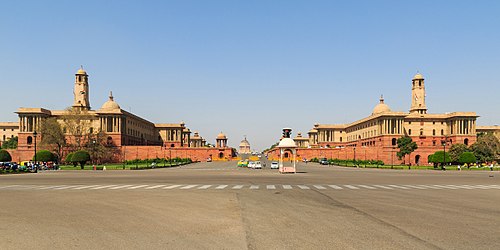
BILATERAL ISSUES IRAN 11th India Iran Joint Consular Committee Meeting (JCCM), New Delhi, 16 M.....
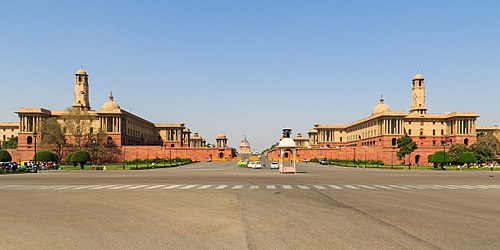
IRAN India extends relief assistance to Iran after recent floods, Tehran, 17 April 2019 In lin.....
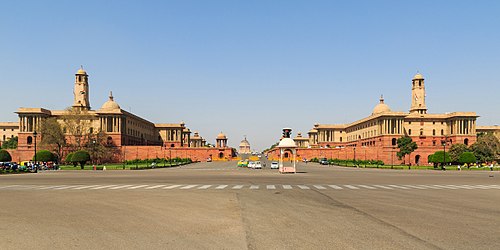
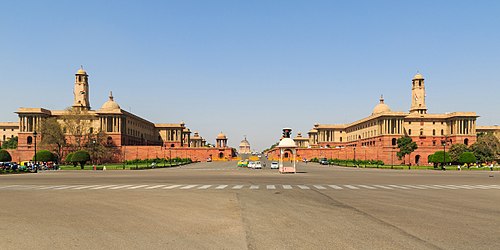
BILATERAL ISSUES EGYPT India condemns terrorist attacks in Egypt, New Delhi, 22 February 2019 .....
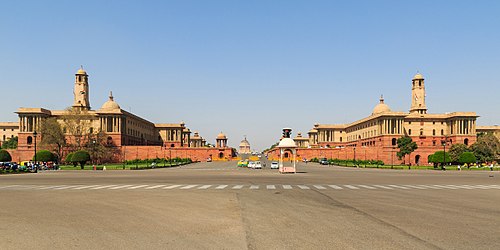
BILATERAL ISSUES ALGERIA Visit of Foreign Minister of Algeria to India (January 30-February 01.....
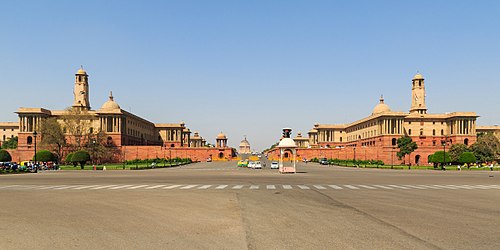
ALGERIA Cabinet approves Agreement between India and Algeria on Cooperation in the field of Space.....
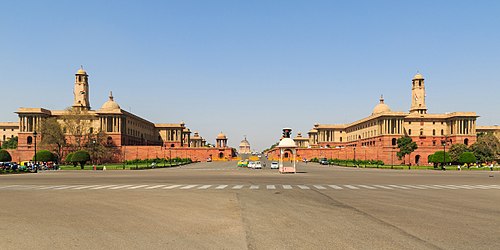
BILATERAL ISSUES IRAQ Jaipur Foot Camp in Karbala, Karbala, 21 November 2018 A 40-day Artif.....
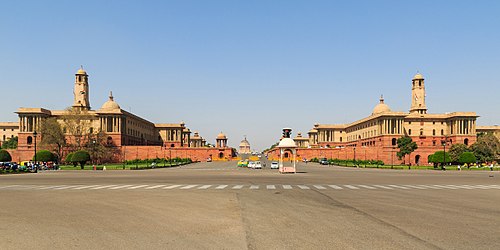
BILATERAL ISSUES KUWAIT Visit of External Affairs Minister to State of Qatar and State of Kuwa.....
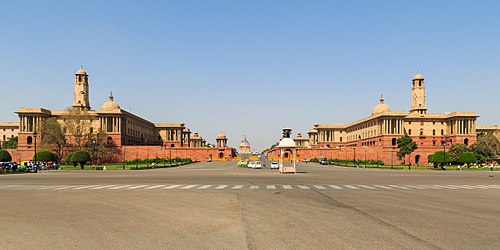
BILATERAL ISSUES EGYPT Cabinet approves MoU between India and Egypt on cooperation in the fiel.....
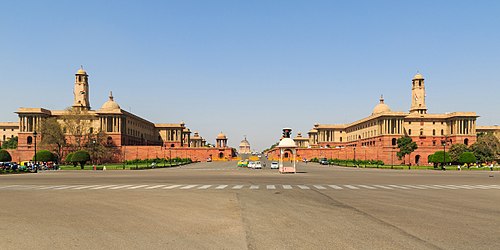
BILATERAL ISSUES BAHRAIN Question No. 3566, Unpaid Workers in Bahrain, Lok Sabha, New Delhi, 0.....
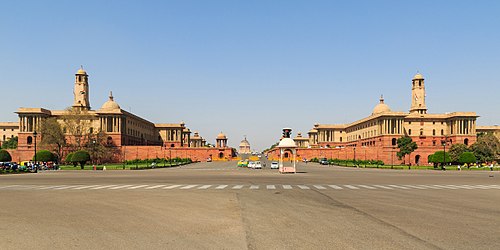
BILATERAL ISSUES BAHRAIN Visit of External Affairs Minister to Manama, Bahrain (July 14-15, 20.....
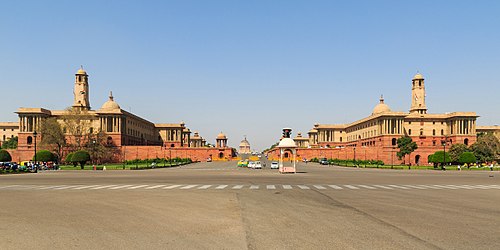
BILATERAL ISSUES BAHRAIN Cabinet approves MoU between India and Bahrain on cooperation in the .....
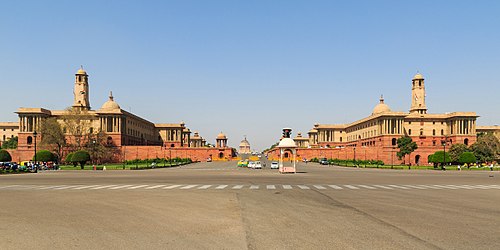
BILATERAL ISSUES IRAN External Affairs Minister’s meeting with Iranian Foreign Minister,.....
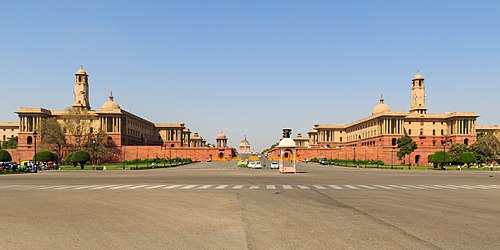
BILATERAL ISSUES IRAN Cabinet approves MoU between India and Iran on the establishment of an e.....
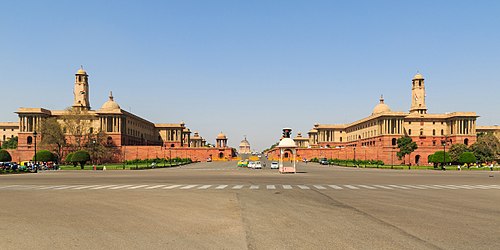
(Monthly Digest of Official Indian Statements on Middle East) BILATERAL ISSUES EGYPT Mr. Sa.....
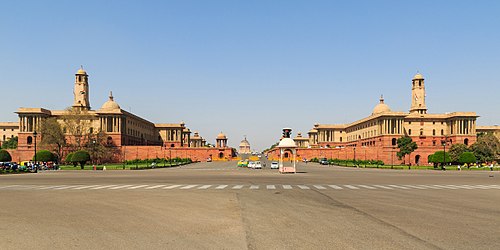
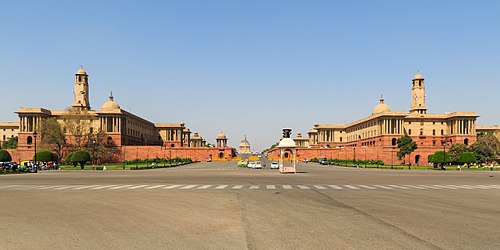
(Monthly Digest of Official Indian Statements on Middle East) BILATERAL ISSUES IRAN Launch .....
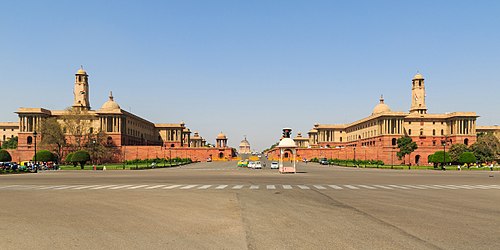
(Monthly Digest of Official Indian Statements on Middle East) BILATERAL ISSUES &.....
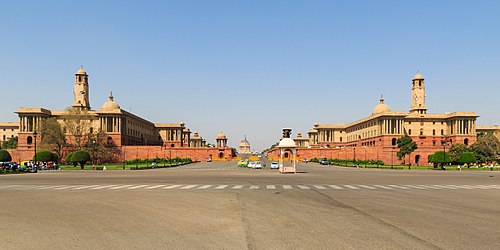
BILATERAL ISSUES a. EGYPT 1. H.E. Col. Rajyavardhan Singh Rathore, Minister of State for Youth.....
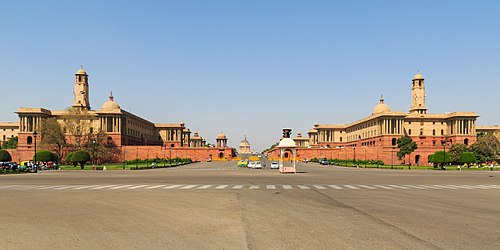
BILATERAL ISSUES a. IRAQ 1. India’s position on the Referendum held in the Kurdistan Reg.....
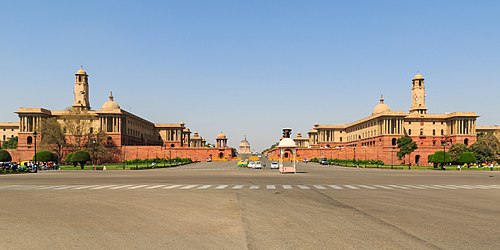
BILATERAL ISSUES IRAN 1. 6th Meeting of Joint Committee on Ports and Maritime Cooperation.....
